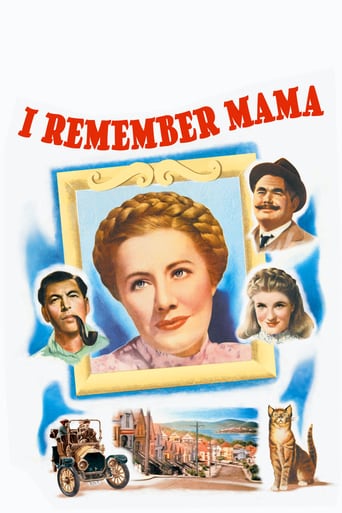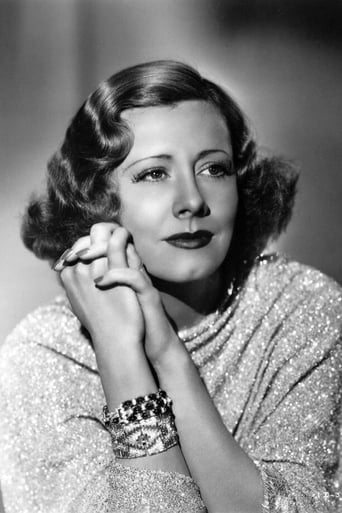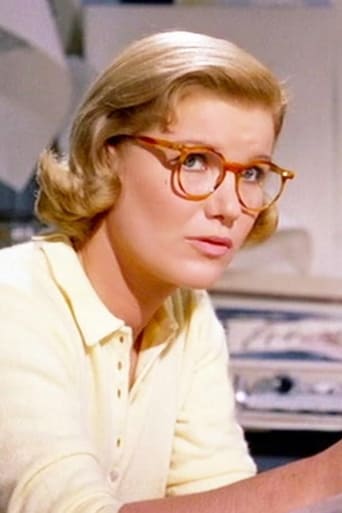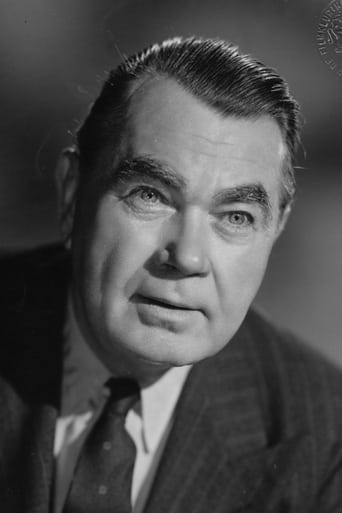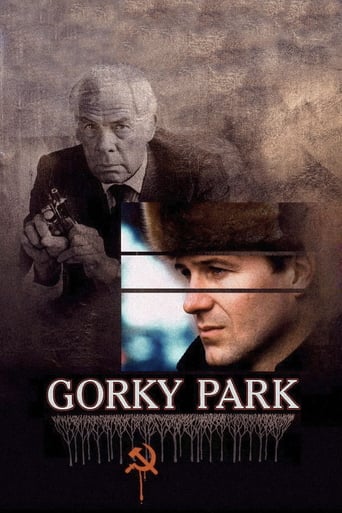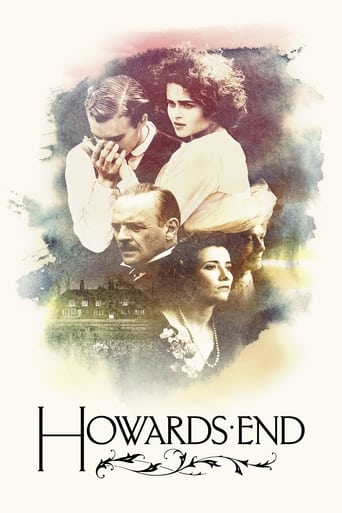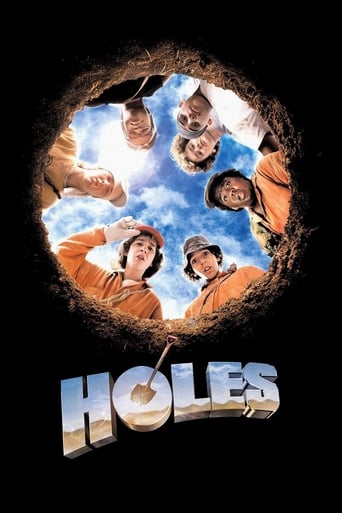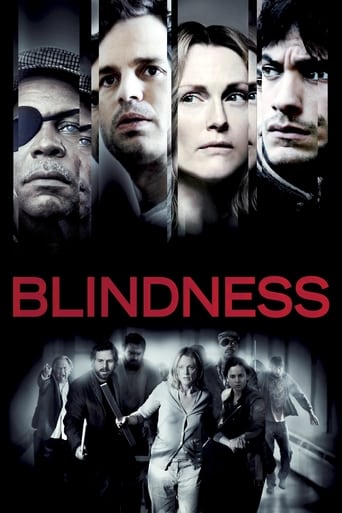I Remember Mama (1948)

Norwegian immigrant Marta Hanson keeps a firm but loving hand on her household of four children, a devoted husband and a highly-educated lodger who reads great literature to the family every evening. Through financial crises, illnesses and the small triumphs of everyday life, Marta maintains her optimism and sense of humor, traits she passes on to her aspiring-author daughter, Katrin.
Watch Trailer
Cast


Similar titles
Reviews
Producer: Harriet Parsons. Executive producer: George Stevens. Presented by Dore Schary. Copyright 11 March 1948 by RKO Radio Pictures, Inc. New York opening at the Radio City Music Hall: 11 March 1948 (ran six weeks). U.S. release: 17 March 1948. U.K. release: 23 August 1948. Australian release: 20 January 1949. 134 minutes. Cut by RKO to 127 minutes in Australia. SYNOPSIS: A Norwegian family, living very modestly (but not frugally) in San Francisco in the 1910s, struggle to make ends meet.NOTES: Nominated for five Academy Awards, including Best Actress, Irene Dunne (lost to Jane Wyman in "Johnny Belinda"); Best Supporting Actor, Oscar Homolka (lost to Walter Huston in "Treasure of the Sierra Madre"); Best Supporting Actress, Ellen Corby (lost to Claire Trevor in "Key Largo"); Best Supporting Actress, Barbara Bel Geddes (lost to Claire Trevor in "Key Largo"); Best Cinematography, Nicholas Musuraca (lost to William Daniels for "The Naked City").Won, Golden Globe Awards, Best Supporting Actress, Ellen Corby!The play opened at the Music Box on 19 October 1944 and ran a colossal 714 performances. Richard Rodgers and Oscar Hammerstein produced (it was their first Broadway show) and playwright John Van Druten directed. Mady Christians played Mama, Joan Tetzel was Katrin, Marlon Brando made his Broadway debut as Nels, Oscar Homolka (who married Miss Tetzel in real life) was Uncle Chris. COMMENT: Those often misused adjectives "warm" and "human" could justly be applied to this meticulously realized and irresistible study of a working-class Norwegian family in turn-of-the-century San Francisco. The performances, with the possible exceptions of Barbara Bel Geddes' archly smug ingénue and Oscar Homolka's rather too blustery Uncle Chris, are faultless-especially Irene Dunne's restrained and sensitive portrayal of the lead role, her accent seemingly so natural (not phoney and theatrically forced like John Qualen's) we accept it unquestioningly as her own.The film is slow to get under way, but one is deftly drawn into the action and all our preconceived prejudices against a woman's picture soon melt away under the mastery of George Stevens' ultra-sensitive direction. Only the most mindless churl could possible resist Hardwicke's beautiful readings from "A Tale of Two Cities".
Irene Dunne, Maureen O'Hara, and Barbara Stanwyck were all, to my mind, among the ten finest actresses that Hollywood ever saw, yet not one of them won an Academy Award. In I Remember Mama, Irene Dunne is at her best, and that is saying a great deal. She can convey, with a hurried glance, a stiffening of her pose, or a momentary melting of her features, or a slight tremor in the voice, whole great fields of feeling, thought, determination, and womanly strength; and by that last phrase I do not mean "strength, that happens to reside in someone of the female sex." The stronger she is, the more womanly she is, and the more womanly, the stronger. But in those days people did not generally fall into the fatal error of assuming that a woman had to be like the embarrassing Xena Warrior Princess in order to show forth strength.I Remember Mama is an episodic film, really six or seven short films in succession, each of them centering on some event in the life of the immigrant Norwegian family, whose head is played in a genial and understated masculine way by Philip Dorn, but whose beating heart is Mama. Mama takes in a boarder (Cedric Hardwicke) who reads to the family from the classics, and who stiffs them for the whole of his rent, while leaving to them his books; and she deals with the disappointment with charity and patience and human insight. She must take charge over the last moments of her dying Uncle Kris (Oskar Homolka, who won a well-deserved Oscar for his performance), and is at once vulnerable in her sadness and firm in her resolve to accept into their family his wife, whom the family had long thought to be merely a mistress. She and her variously irritating sisters -- portrayed splendidly and humanly, so that we may not like them, but we do not hate them or despise them -- had expected money from his will, but there is no money; and her emotionally heightened but not scornful reading to the sisters of Uncle Kris's notes, about where the money has gone, is one of the great moral triumphs in film. There are, in fact, moral triumphs everywhere, and high comedy, and understated sweetness that never galumphs into sentimentality. Barbara Bel Geddes, as the eldest daughter whose memoirs make up the movie, is splendid, as are all the supporting cast; Ellen Corby as the mousy aunt, Edgar Bergen as her nebbish of a fiance, and Florence Bates as the big-bosomed novelist lady with a weakness for really rich food.I think sometimes that Hollywood can no longer make movies such as this, because our actors and actresses are all far removed from the exigencies of real poverty, and from hard and daily physical labor. Dunne, Dorn, Homolka, and the rest were not so removed. This is a movie without any flaws.
I Remember Mama was released 68 years ago and although Mrs. Shullivan and my own mother have been deceased for quite some time, we could not help but draw comparisons between our own mothers and the role of Irene Dunne who plays the family matriarch Mama Hansen. The story follows Mama and Papa Hansens' immigration from Norway to San Francisco and where they struggle week by week, pay day to pay day, to raise their four children who range in age from 8 to 18. Every Saturday morning Mama's ritual would be to corral her family around the kitchen table and distribute Papa's weekly pay amongst the most critical bills that they had to pay such as their rent to their landlord, groceries, the children's clothing needs and education for books and writing material. Every week Mama would comment "Good we have enough money this week so there is no need to have to touch our bank account". Mama and Papa also retained what they called their "little bank" which held a few coins in a metal tin which periodically they would need to resort to in an effort to make ends meet each week.Anyone who lived through the baby boomer years of the 1940's – through the 1960's would understand that "getting by through compromise and doing without" was a way of life whereas children of today call it "get it, buy it, and pay for it later". Mrs. Shullivan and I thoroughly enjoyed this films story which was narrated by the Hansen's eldest daughter Katrin, played by Barbara Bel Geddes. Of course this was a simpler time in the early 1900's and one of the great Directors of all time George Stevens, stuck to the script and allowed his audience to enjoy a simpler time in American history and the daily living rituals of an immigrant Norwegian family that extended to three Aunts (Jenny, Sigrid and spinster Trina played by Ellen Corby) and one gruff Uncle Kris (played superbly by Oskar Homolka) who was both feared and respected. The four children loved their parents immensely and although they suffered financially through hard times their strength was in the extended family unit comprised of the Hansen's three Aunts, one young cousin, and one gruff Uncle Kris who owned his own car and who had a female companion who was a mystery woman which was reflected by the family always wondering if she was Uncle Kris's housemaid or his wife? Of course the Hansen's needed to take on a boarder (my own family had two boarders in the 1950's) who always committed to paying his board the following week. In lieu of payment the boarder Mr. Hyde (played by Cedric Hardwicke) would read classic novels out loud to the family each night with so much passion and emotion that it inspired the eldest daughter Katrin (played by Barbara Bel Geddes) to want to become an author herself. Throughout the film we see the families reliance on Mama Hansen to provide strength, a positive attitude and most especially hope to the Hansen clan. Near the end we come to realize that Mama was telling a white lie to her children, and if you have not shed a tear or two by this point in the film then I can only assume you were born after year 2000 when hardship is an unknown term to many. Mrs. Shullivan and I truly loved this film and directors such as George Stevens who directed I remember Mama rank right up there with the very best directors such as Frank Capra, John Ford, and George Cukor.If you want to see a film that allows you to reminisce about your own childhood and relationship with your extended family then this film will be sure to bring back some of your old memories to the forefront with the narration by then 26 year old actress Barbara Bel Geddes who explains her upbringing and the loving relationship she shared with her siblings, her father, and most importantly her Mama played with such love and thoughtfulness as only actress Irene Dunne could have accomplished. Be prepared to shed a few tears. I rated it a strong 8 out of 10 for director George Steven's unique ability to take the simplest of story lines, that being an early 1900's immigrant families daily struggles that are conquered through the family bond.
That's the best way to describe this movie. In words Mama herself used. There are so many things to like about his movie. It holds a mirror up to family life, depicting all the joys, triumphs, struggles, tragedies, and ultimately sacrifice. The script is superb storytelling at its very best. What makes it so good is that it's something all of us can relate to - FAMILY.Even though this is a very sentimental movie, it doesn't gloss over the fact that most of us have imperfect families with some very eccentric members. I think Uncle Chris captured this perfectly. It also reminds us that, ultimately, America is a country of immigrants - a fact that I think many of us lose sight of today. I loved the Norwegian accents and constant references to the "Old Country".All the casting was superb. Barbara Bel Geddes truly shines as the narrator/storyteller of the film. She doesn't strike one insincere note in her entire performance.This film is so rich with details, mood, setting, cinematography, atmosphere - I could go on and on. Each time I watch it, I pick up something new in the set or the dialogue, or in facial expressions, that I haven't noticed before. You will want to watch this again and again, so you too can "Remember Mama".

